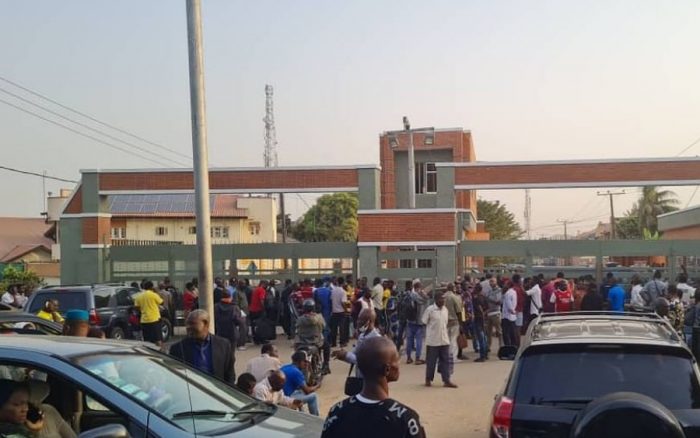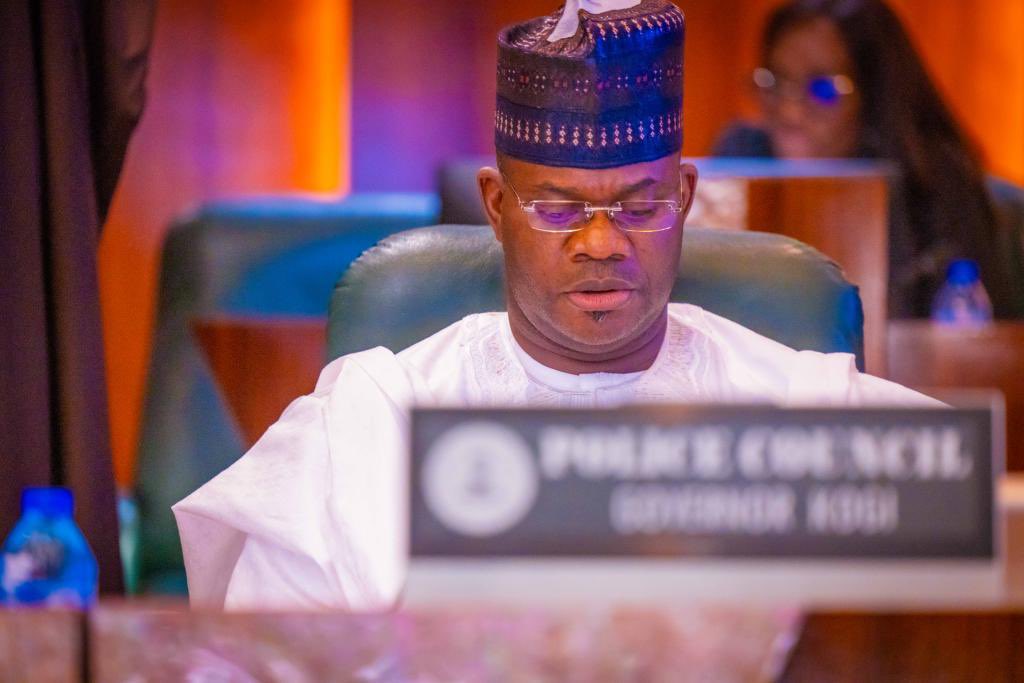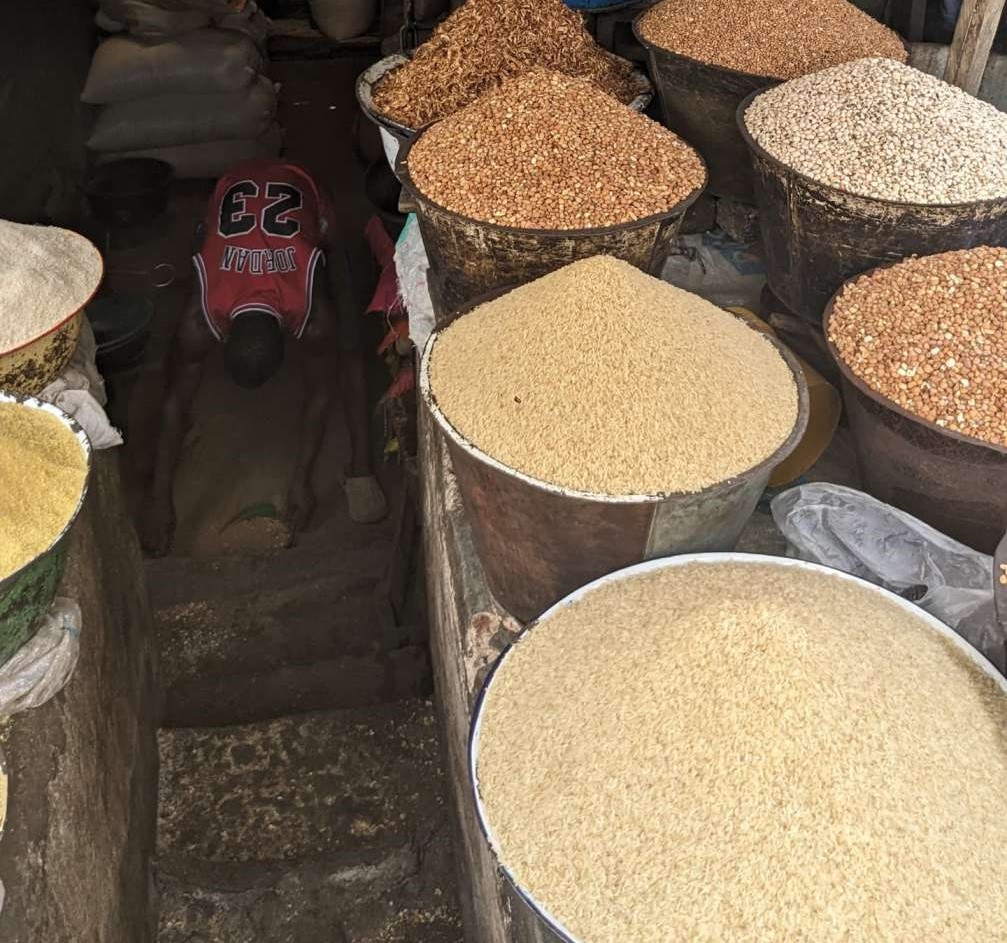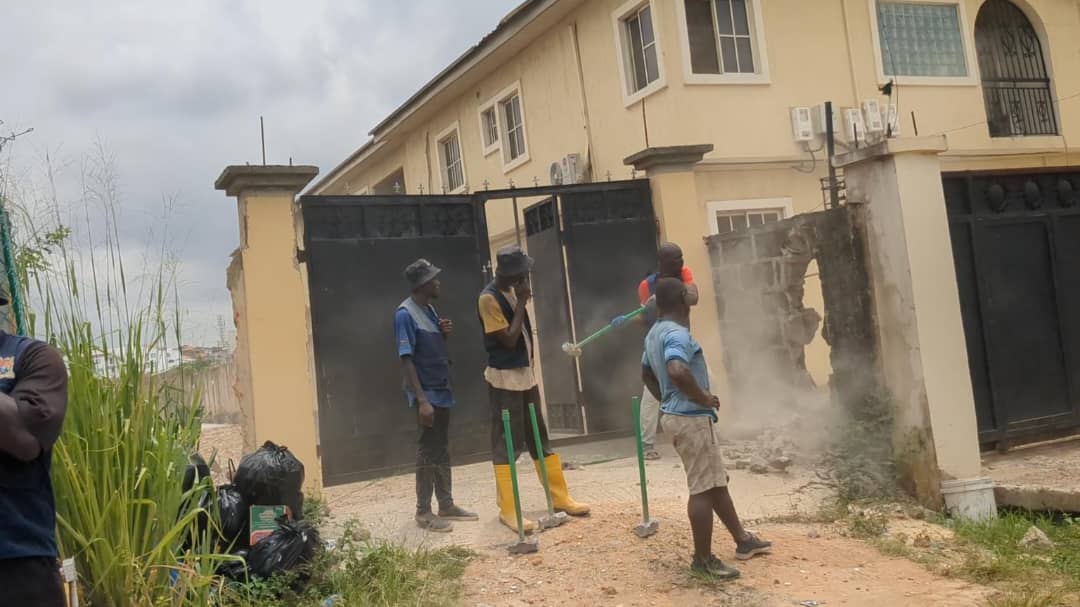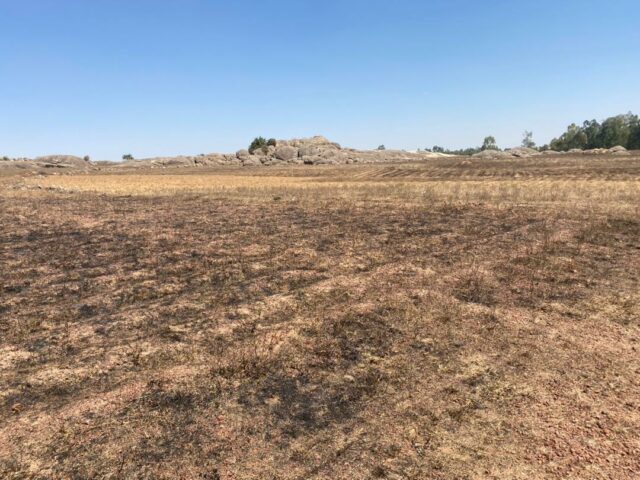Until recently, Magodo Phase II Estate, a settlement in the Ikosi-Ketu Local Council Development Area (LCDA) of Lagos State, used to be just like any other abode for the rich and influential in the country.
With a plot of land going for as much as N100 million, the settlement is not only known for its breath-taking features like its buildings and layouts, but also for its inhabitants, who are mostly the movers and shakers of the society.
For years, the inhabitants lived proudly within the estate, and to the admiration of the less privileged in Lagos, who wished and hoped that they would one day make enough wealth and become a proud owner of a property in an estate that bore similar features.
READ ALSO: Magodo Estate: Malami Fights Back, Chides Southwest Governors
Those aspirations have however now been met with strong doubts, going by the recent issues bothering on the real ownership of the 549 plots of land upon which the estate is situated.
With the full knowledge that the once admired beautiful structures and features within the estate may soon turn into several piles of rubbles, its wealthy inhabitants are currently doing all they can to save them.
READ ALSO: Southwest Governors Attack Malami Over Humiliation of Sanwo-Olu at Magodo Estate
The recent desperation by the inhabitants of the estate to rescue their properties from being demolished, can however be traced back to three court judgements that had been in favour of the Shangisha Landlords Association, the actual owners of the land.
RECENT DEVELOPMENTS
Two weeks ago, police officers acting on the orders of Usman Alkali Baba, the Inspector-General of Police (IGP), and Abubakar Malami, the Attorney General of the Federation (AGF), arrived at the estate with bulldozers to enforce a 2012 Supreme Court order giving ownership of over 549 plots of land to the Shangisha Landlord Association.
This move was met with a stiff resistance by occupants of the estate, who in turn, staged series of protests, demanding that the police vacate their property.
READ ALSO: From Dasuki’s House to Magodo Estate, Unlawful Sieges of the ‘Malami Police’
The highlight of the face-off, however, was when Babajide Sanwo-Olu, the Lagos State Governor, visited the scene and after addressing the occupants, demanded that the policemen vacate the estate.
His demand was met with some degree of defiance by Abimbola Oyewole, a Chief Superintendent of Police (CSP), and the leader of the police team, who said he was just a mere officer carrying out the orders of his superiors.
The incident would later lead to accusations and counter-accusations between the Southwest Governors Forum and the AGF, but in the end, nothing changed as the policemen continue to man the estate premises with bulldozers till date.
ORIGIN OF THE LAND DISPUTE
The first time a suit was filed against Lagos State High Court on the dispute was in June 1988, but the hearing did not start until May 1993.
The main plaintiffs were the Shangisha Landlords Association and the main defendant was the Lagos State government.
Prior to the filing of the suit, the Lagos State Government had between 1984 and 1985 demolished the property of the plaintiffs, thereby displacing them.
Above all, the aggrieved landlords were never served with any contravention or demolition notices before their houses were demolished.
After the demolition, the affected landlords made several attempts at dialoguing with the state in a bid to find ways of resolving the issue amicably.
Lagos State’s claim was that Shangisha village is a part of the 7,300 acres of land compulsorily acquired by the Lagos State Government by Government Notice No.236 of 14th October 1969, and published in the Lagos State official Gazette No.35 Vol.2 of 24th October 1969.
The acquisition was further sealed by virtue of the public Land Acquisition Vesting order which was published as Lagos State Legal Notice No.7 of 1976 in the Lagos State Extraordinary Gazette No.25 Vol.9 of 18th June, 1976.
READ ALSO: Sanwo-Olu Knocks Police for Continued Presence at Magodo Estate
Lagos State further claimed that the plaintiffs were not physically present on the site at the time of the acquisition, describing them as squatters who had illegally erected buildings on the land, without the knowledge and approval of the state.
In one of the meetings held in October 1984, the state government initially agreed to reallocate the lands to the landlords, but it eventually reneged on its promise.
In the years that followed, the plots of land in dispute were eventually sold to the wealthy in the society.
THE VERDICT FROM THE HIGH COURT (1993)
Prior to the judgement in December 1993, the plaintiffs had sought for a declaratory order as follows:
“An order that members of the Shangisha Landlords Association whose lands and/or buildings at Shangisha Village were demolished by the Lagos State Government and/or its servants or agents during the period of June 1984 to May 1985 are entitled to first choice preferential treatment in the allocation and/or (as soon as possible) re-allocation of their particular plots as agreed in the meeting held on the 16/10/84 with the Ministry of Lands, Housing and Development Matters.”
READ ALSO: BREAKING: Police Forcefully Evict Magodo Estate Residents Over Lagos Govt’s Debt
The court accepted the landlords’ plea, ruling in their favour that the 549 plots of land be reallocated to them.
The court also held that: “The issues transcended ownership of the land. It was whether or not the defendants agreed to allocate alternative plots of land to each of the 549 plaintiffs having regard to the manner in which they were evicted and their structures demolished.”
The court went on to give an order of mandatory injunction “that the said defendants shall forthwith allocate 549 plots of land to the plaintiffs in the Shangisha village scheme aforesaid.”
MORE DEFEAT FOR LAGOS GOVERNMENT AT APPEAL (2001) AND SUPREME (2012) COURTS
Lagos State was unhappy about the ruling and appealed it.
However, while delivering judgement on September 25 2001, Justice Olufunlola Adekeye, the presiding judge at the Lagos State Court of Appeal, dismissed the state’s appeal, recognising the 1993 ruling of the high court.
When the matter was eventually tabled before the Supreme Court, of which Justice Walter Onnoghen was one of the judges on the panel, in 2012, the initial High Court ruling of 1993 and Court of Appeal ruling of 2001 were reaffirmed.
READ ALSO: Brooks Estate Apologises to Lagos CP Odumosu ‘Over Improper Conduct by Gatekeepers’
The court held that Lagos State agreed to allocate alternative plots of land to each of the 549 plaintiffs, having regard to the way they were evicted and the manner in which their structures demolished.
It was also upheld that the plots to be given were to be inside the Magodo scheme and not anywhere else.
As things stand, the police officers stationed at Magodo Estate have refused to leave the premises despite the public condemnation that greeted their humiliation of the Lagos State Governor and chief security officer of the state.
Subscribe
Be the first to receive special investigative reports and features in your inbox.


